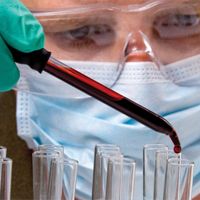Article
Universal Hepatitis C Screening for Baby Boomers?
Author(s):
Although baby boomers make up 75% of Americans living with chronic hepatitis C (HCV), the majority are unaware that they are infected.

Although baby boomers make up 75% of Americans living with chronic hepatitis C (HCV), the majority are unaware that they are infected.
The Centers for Disease Control and Prevention (CDC) and the United States Preventive Services Task Force are endorsing a universal one-time HCV screening for baby boomers, defined as people born from 1945 to 1965. Researchers from multiple institutions in San Antonio, TX tested the effectiveness of the screening program. It integrated clinician education, electronic medical record algorithm for eligibility, anti-HCV antibody test with HCV RNA, personalized counseling, and case management.
“We developed strategies following approaches used for HIV to implement baby boomer, HCV screening in a hospital setting and report results as well as costs,” the authors wrote in the Journal of Hospital Medicine.
The analysis included 3,168 undiagnosed baby boomers. A total of 240 (7.6%) tested anti-HCV positive, indicating that they had been infected with the virus at some point in the past. This incidence was observed in younger, uninsured men more than any other group. Of those 240 patients, 214 (89.2%) tested positive for HCV RNA and 134 (4.2% of 3,168 participants) tested positive for chronic HCV.
“Among patients with chronic HCV, 129 (96.3%) were counseled, 108 (80.6%) received follow-up primary care, and 52 (38.8%) received hepatology care. Five patients initiated anti-HCV therapy,” the report confirmed.
Around 80% of the patients received follow-up care which suggests that the screening program led patients to get treatment. This can reduce the risk of more complications, such as cirrhosis and liver failure. Therefore, identifying patients with the condition can result in better outcomes.
Access to treatment programs as well as cost continue to be challenges for those diagnosed with HCV. For 14 months of care, the total for patients in this study alone came to $286,482.
While the screening program was effective and diagnosed 4.2% of the population pool with HCV, strategies to get patients the proper care is an important next step.





